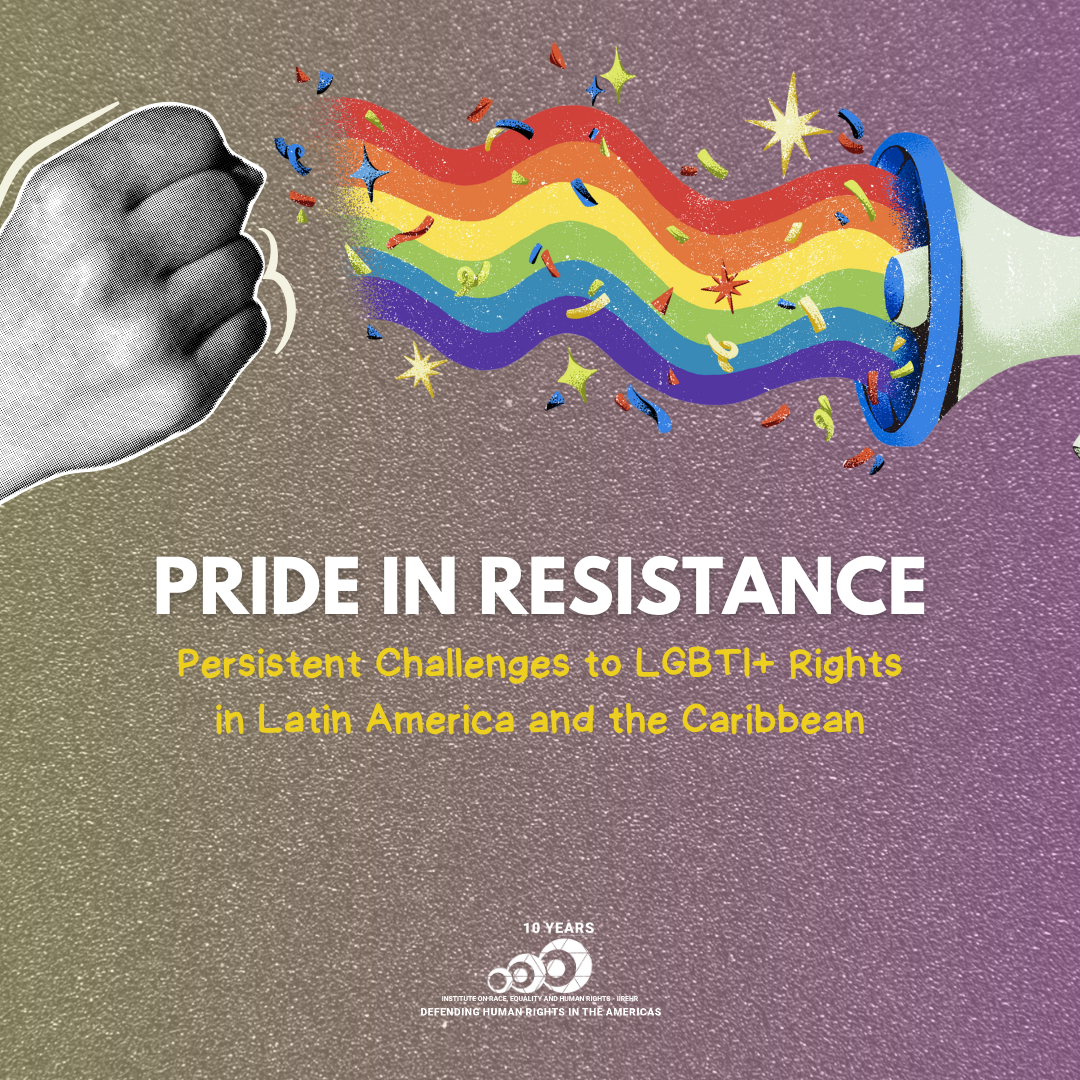Pride in Resistance: Persistent Challenges to LGBTI+ Rights in Latin America and the Caribbean
Washington, D.C., June 28, 2025.– LGBTI+ Pride Day was born from an act of protest and resistance in the face of discrimination and violence, and although it was an important […]

Washington, D.C., June 28, 2025.– LGBTI+ Pride Day was born from an act of protest and resistance in the face of discrimination and violence, and although it was an important turning point in the fight for the rights of people with diverse sexual orientation and gender identity, the truth is that 56 years after the Stonewall protests on June 28, 1969 in New York, resistance is not past, it is present, especially in a region that marginalizes and violates LGBTI+ people.
In commemoration of LGBTI+ Pride Day, from the Institute on Race, Equality and Human Rights (Race and Equality), we recognize that Latin America and the Caribbean has experienced important advances in legislative terms, such as protection against discrimination and violence based on sexual orientation and gender identity, equal marriage, and the recognition of gender identity for trans and non-binary people.
However, we emphasize that the region continues to face serious challenges to the effective application of this legislation, in addition to registering worrying figures of violence and murders against LGBTI+ people. This scenario is aggravated by the increase in hate speech by anti-rights groups, the installation of authoritarian governments in several countries and the drastic reduction of international cooperation.
The murder of people because of their sexual orientation or gender identity is a reality in Latin America, to the point that the region ranks as the most dangerous in the world for trans people, especially trans women. In this context, Brazil, Mexico and Colombia are the countries with the highest number of cases: According to Trans Murder Monitoring, between October 2023 and September 2024, there were 106 murders in Brazil, 71 in Mexico and 25 in Colombia.
In Colombia, the brutal murder in April 2025 of trans activist and human rights defender Sara Millerey has inspired the struggle for the approval of the Comprehensive Trans Law project, which in recent days was formally introduced for debate in the Congress of the Republic, marking a milestone in the struggle for the recognition and guarantee of the rights of trans and non-binary people in the country.
On the other hand, the restriction of civic space in countries such as Cuba and Nicaragua, and the approval of laws that limit and condition the work of non-governmental organizations in the field of human rights, as happened recently in El Salvador and Peru, is a serious setback in the fight for the rights of LGBTI+ people.
Added to this, is the sudden and drastic reduction in international cooperation since the suspension of funds by the United States government, which puts at risk years of community work, protection networks, basic services (such as health, shelter, legal care) and political participation. Without this support, many organizations cannot sustain themselves, especially in contexts where there are no real public policies of inclusion.
In the midst of this reality, we reaffirm our commitment to promote and defend the rights of LGBTI+ people, mainly before the human rights protection mechanisms of the United Nations and the Inter-American System. But we also call on the international community, governments and civil society to protect this population and guarantee their rights.
Today more than ever, pride must be translated into action, because for LGBTI+ people, resisting is not a symbolic act: it is a way to survive.

